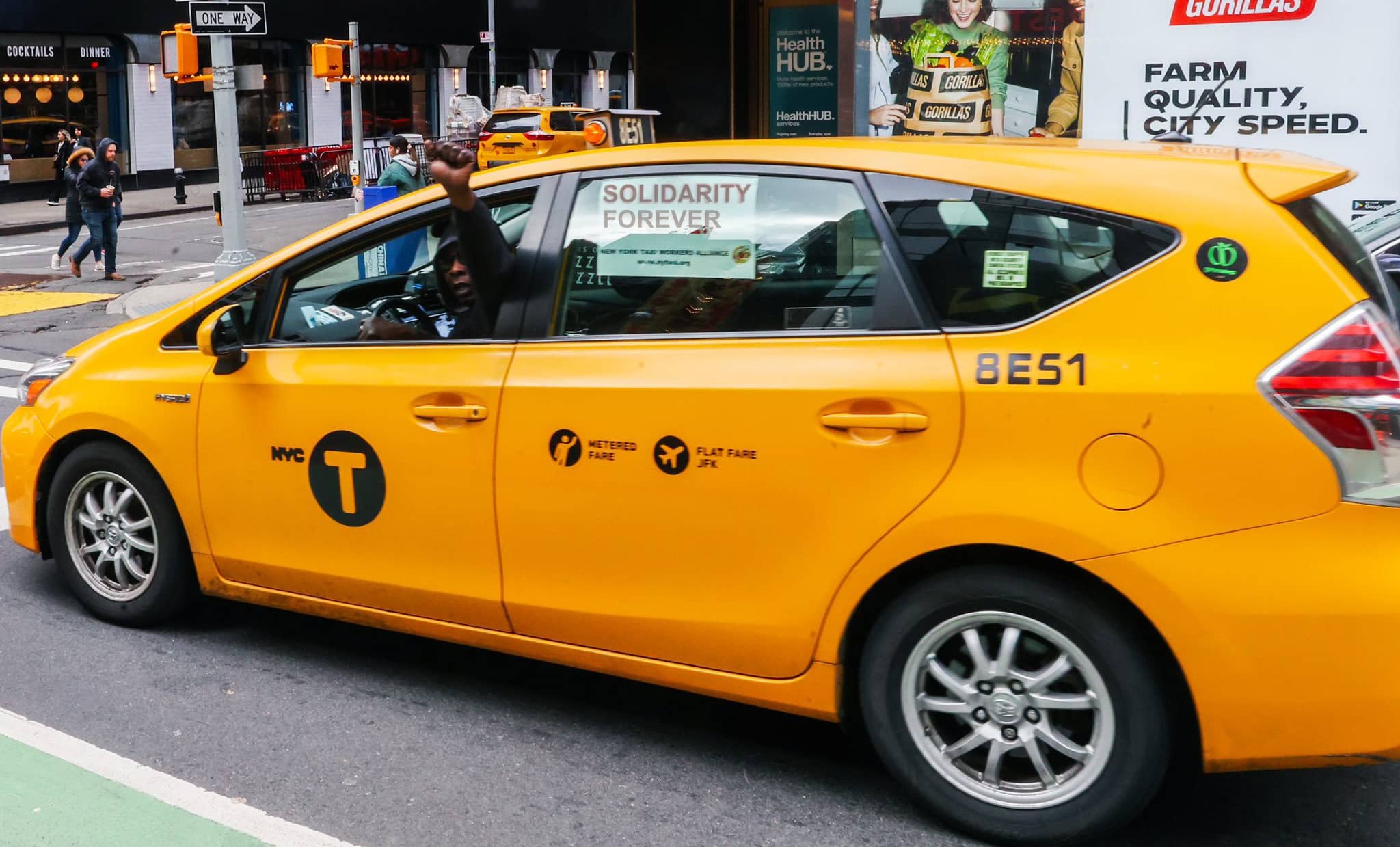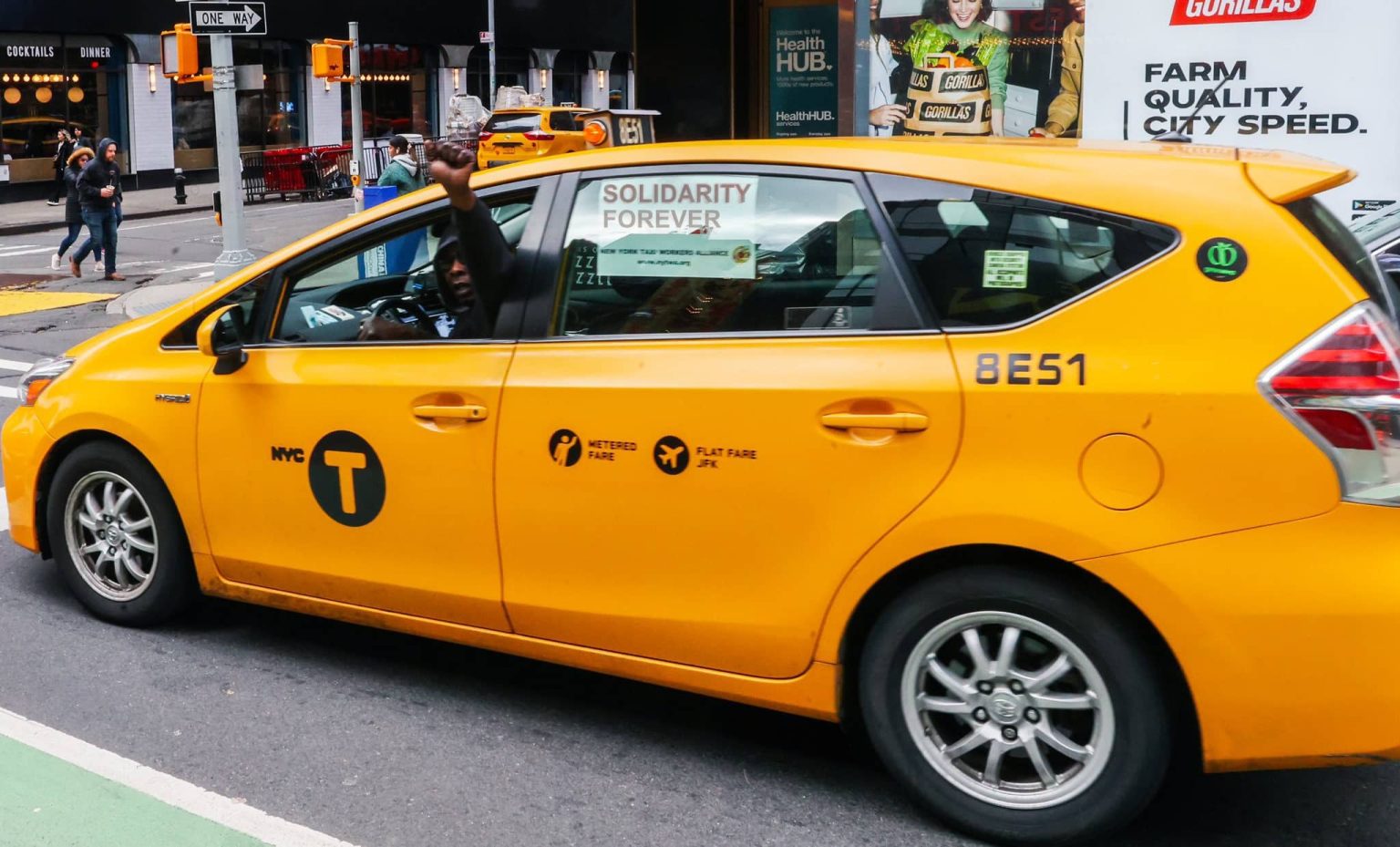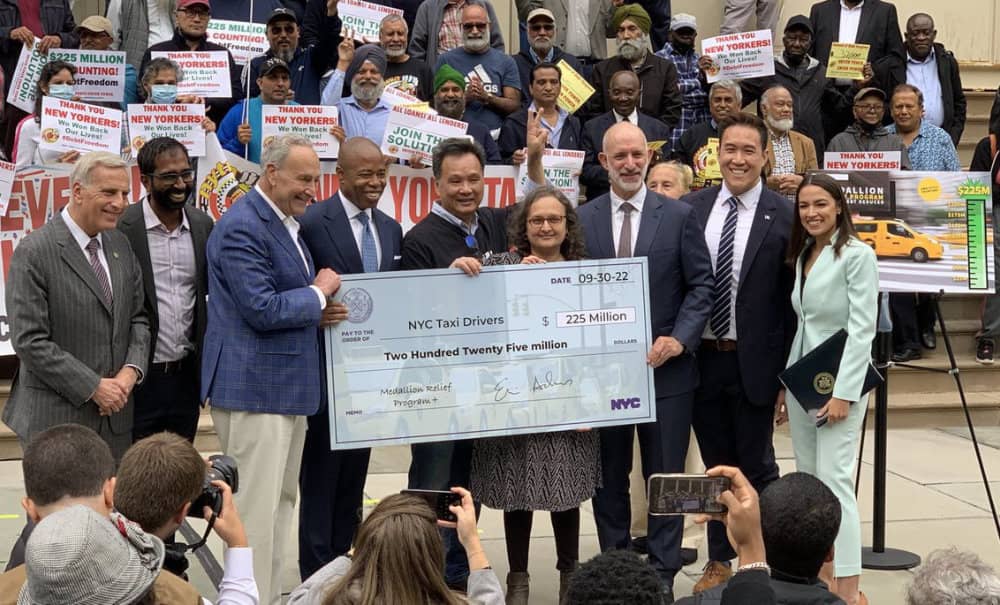
Dear friends,
As the UN announces that millions of displaced people face starvation in Gaza, JHISN adds our voice to the humanitarian calls for an immediate cease-fire and for an end to all war crimes, Islamophobia, and anti-semitism. While, at home, our mayor scapegoats desperate displaced migrants as the reason for cutting city services, JHISN calls for strict adherence to international law regarding asylum seekers and taxing the rich to pay for the needs of all New York residents, new and old. Our libraries are threatened by budget cuts despite providing critical community services including their Winter Coat Drive which we encourage our readers to support with donations at the 81st Street location.
In this newsletter, we offer an additional way to listen to local coverage of immigrant stories online with WBAI in partnership with the DocumentedNY team. Happily, we lead with the excellent news about the power of immigrant labor that has resulted in the hired car workers in NYC getting back hundreds of millions of dollars in wages stolen by Uber and Lyft.
1. Taxi Workers Alliance Celebrates Massive Wage Theft Settlement
“NYC Uber and Lyft drivers were cheated out of their hard-earned income at a time when an independent study found drivers were earning below even the minimum wage, and when out of that income drivers must pay for operating expenses. On top of that, drivers are locked out of the courts due to arbitration. Tens of thousands of drivers were cheated out of a better life and then kept from pursuing justice.” —Bhairavi Desai, New York Taxi Workers Alliance Executive Director
The taxi and hired car industry, powered by immigrant labor, is an essential part of NYC’s economy. It’s also a site of constant cutthroat struggle, where billionaires fight for market share, and weaponize political connections and technology to ruthlessly extract profit from hundreds of thousands of drivers. Remarkably, the drivers, led by the New York Taxi Workers Alliance (NYTWA), not only manage to survive in this merciless arena, but continue to notch up significant victories.
NYTWA started in 1998, defending the rights of yellow cab and black car workers—long before the advent of ride-share apps. But once Uber and Lyft started flooding the streets with tens of thousands of cars, the union pivoted to include the app drivers’ concerns. Today 70 percent of the 21,000 NYTWA members are Uber and Lyft drivers.
The union soon learned that ride-sharing companies were engaged in widespread wage theft, including illegally deducting passenger sales tax out of driver’s pay. Employer-friendly arbitration clauses, included by default in drivers’ contracts, severely limited the ability of the workers to sue. In 2015, NYTWA asked the governor and attorney general to do something about their stolen wages. They were turned down flat.
Undeterred, the NYTWA began a relentless campaign to bring Uber and Lyft to account. In 2016, they filed suit and publicized the app companies’ blatant lawbreaking. Soon, Uber “discovered” that they had “made a mistake” in the way they calculated commissions, and promised to pay back tens of millions of dollars—a small proportion of what was owed. In 2019 and 2020, the NYTWA went back to court, challenging the arbitration clauses in cases of wage theft, and demanding full reimbursement for all drivers.
On November 2, after eight and a half years of NYTWA organizing, State Attorney General Letitia James announced that Uber and Lyft had agreed to a massive settlement; one of the largest wage theft recoveries in history. The companies will pay back all the stolen wages, amounting to $328 million. In addition, Uber and Lyft have agreed to guarantee drivers a minimum wage and sick leave. As NYTA’s Desai says,
“You can’t turn back the clock and feed a hungry belly, but this money is going to help drivers get the life that they should have had in the years that this money was initially stolen. I hope that drivers will be able to move into that bigger apartment, put a down payment on their next car, or have their kid go back to college – that’s how significant this is.”
Attorney General James praised the drivers for their unrelenting efforts. She thanked the NYTWA specifically “for bringing the matter to this office.”
As we write, another uphill NYTWA battle against the ride-share companies and the city administration is underway. The union supports the longstanding cap on the number of ride-share vehicles in the city. The cap serves to prevent the companies from oversaturating the city with cars and pushing down driver income. But Uber and its captive mouthpiece, the Independent Drivers Guild, have been pushing for an exemption from the cap for electric vehicles. This would do more than weaken the cap: because of a city mandate for all-electric fleets by 2030, exempting electric vehicles essentially does away with the cap altogether. As usual, the city’s Taxi and Limousine Commission has taken the companies’ side.
For now, an injunction stemming from a NYTWA lawsuit has stopped the city from issuing any more electric for-hire vehicle license plates.
WHAT CAN WE DO?:
2. DocumentedNY on the Radio
“Our journey on earth, though difficult and long, shall be filled with happiness and in the end everyone gets their due, either good or bad.”—Irinajo Lyrics by Beautiful Nubia as translated from Yoruba by Fisayo Okare, host of Documented Immigration News Roundup
The online free speech radio station, WBAI, has been elevating the work of the DocumentedNY news source with a half-hour show airing at 5 pm on Saturdays. The show host, Fisayo Okare, has brought attention to migration issues ever since Texas started busing migrants to NYC. She brings to us not just the words, but the live voices of people advocating for the immigrant populations coming into New York City.
In the November 11 episode, Okare spoke with Diane Enobabor, who grew up in Texas and is currently a PhD student at CUNY. Enobabor co-founded BAMSA, the Black and Arab Movement Solidarity Alliance, to support men placed at the Stockton Street “respite center” in Bushwick/Bed-Stuy after they arrived from Texas. Along with other members of BAMSA’a rapid response team, she advocated for the City to better support these immigrants, including ensuring that the men had access to showers. BAMSA originally planned to volunteer support work for no more than two months, so as to not cover over the need to address systemic problems about the way the city was providing support services.
BAMSA used monies from a $5,000 grant to launch ESL classes and to begin capturing better data about the migrants they were working with. Since the asylum process tracks people based on the last nation of residency rather than their nation of origin, many asylum seekers of African origin become statistically invisible after coming to the US via other nations. BAMSA’s research has shown that 40% of African migrants arrive by plane, 10% by train, 49% by bus, and only 1% arrive on the Texas buses.
Enobabor also learned that recent migrants who move outside of NYC, such as the Mauritanians who have found success in Ohio, as well as those who returned to Texas, actually found cheaper housing and better access to work opportunities elsewhere. She notes that NYC used to be the foundational start for most migrants but now, by not taking this opportunity to provide the best support to new migrants, NYC is missing an important chance for its own revitalization.
Enobabor and Okare also raised awareness of Adama Bah who founded a Harlem non-profit called Afrikana. The organization played a crucial role by serving as greeters to arriving migrants at Port Authority and then expanded support by helping provide IDNYC cards to people without established residency. Bah’s efforts to support new immigrants were recognized earlier this year when State Senator Jessica Ramos nominated her for the BPHA Community Awards from the New York State Black, Puerto Rican, Hispanic, and Asian Legislative Caucus.
JHISN applauds the work of these incredible women. We encourage our readers to support DocumentedNY and to listen to the noteworthy online radio coverage the news team is now providing about migration issues.
WHAT CAN WE DO?
- Listen to WBAI’s DocumentedNY news show with Fisayo Okare on Saturdays, 5:00 – 5:30 pm.
- Follow and spread the news and work of Adama Bah on exTwitter.
- Support the work of groups that focus on the African immigrant situation such as ACT (African Communities Together).
In solidarity and with collective care,
Jackson Heights Immigrant Solidarity Network (JHISN)
Follow @JHSolidarity on Facebook and Twitter and share this newsletter with friends, families, neighbors, networks, and colleagues so they can subscribe and receive news from JHISN.

